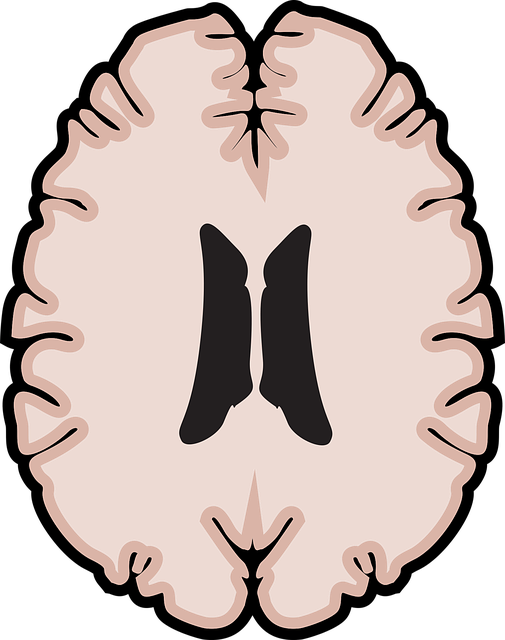The stigma surrounding mental illness creates a toxic work environment in places like Westminster, leading to discrimination and employees hiding their struggles. This impacts well-being and productivity through reduced confidence, concentration issues, and physical symptoms. To combat this, fostering Mental Health Awareness, implementing Burnout Prevention strategies, and utilizing Conflict Resolution Techniques are crucial. Effective approaches, including therapy focused on Westminster Workplace Issues and Job Stress, empower individuals to seek treatment without judgment, normalizing conversations about mental health and reducing stigma. Therapy provides strategies for stress management, empathy building, and open communication, fostering a supportive work environment where employees feel valued.
Mental illness stigma remains a significant barrier to optimal mental health in the workplace, leading to increased anxiety, depression, and reduced productivity. This article delves into understanding the profound impact of stigma on employees’ well-being, specifically examining Westminster workplace issues and job stress. We explore strategies for reducing stigma through comprehensive approaches, emphasizing the critical role of therapy in addressing these challenges. By understanding and challenging societal norms, we can foster inclusive environments that support mental health.
- Understanding Stigma and its Impact on Mental Health in the Workplace
- Strategies for Reducing Stigma: A Comprehensive Approach
- The Role of Therapy in Addressing Westminster Workplace Issues and Job Stress
Understanding Stigma and its Impact on Mental Health in the Workplace

Stigma surrounding mental illness can create a toxic environment, significantly impacting employees’ well-being and productivity in the workplace, especially in settings like Westminster’s bustling business hub. This social construct often leads to discrimination, causing individuals to hide their struggles, which may exacerbate existing job stress and contribute to burnout. Understanding stigma is crucial in navigating workplace issues related to mental health.
The effects are far-reaching; employees might experience reduced confidence, difficulty concentrating, and even physical symptoms due to the internalized shame and fear of judgment. To combat this, fostering Mental Health Awareness becomes a powerful tool. By educating colleagues about the nature of mental illness and implementing Burnout Prevention strategies, organizations can promote an environment where support is offered instead of judgment. Effective Conflict Resolution Techniques can also play a vital role in breaking down barriers, encouraging open conversations, and ultimately reducing the stigma attached to seeking therapy for workplace issues and job stress.
Strategies for Reducing Stigma: A Comprehensive Approach

Reducing stigma around mental illness requires a comprehensive approach that targets various aspects of society, including education, media representation, and policy changes. One effective strategy involves fostering self-awareness exercises in schools, workplaces, and communities to normalize conversations about mental health. By encouraging open dialogue, individuals can better understand the complexities of mental illness, dispel myths, and reduce the fear of association.
Moreover, integrating evidence-based practices like mood management techniques and emotional healing processes into mainstream culture can help destigmatize seeking support. Therapies, such as those offered by professionals specializing in Westminster workplace issues and job stress, play a crucial role in promoting resilience and coping mechanisms. These efforts collectively contribute to creating an environment where individuals feel empowered to pursue treatment without fear of judgment or discrimination.
The Role of Therapy in Addressing Westminster Workplace Issues and Job Stress

In addressing Westminster Workplace Issues and Job Stress, therapy plays a pivotal role in fostering an environment where employees can openly discuss their mental health concerns. Through individual and group therapy sessions, workers gain valuable tools for managing stress and anxiety. Therapists help individuals develop Empathy Building Strategies to navigate challenging interactions with colleagues, promoting better understanding and support within the workplace. By encouraging Mental Wellness Journaling Exercises, employees learn to identify triggers and practice self-care, ultimately improving their resilience.
Effective communication is another key area where therapy excels. Communication Strategies taught in these sessions enable workers to articulate their needs and boundaries more assertively. This open dialogue can significantly reduce stigma by normalizing conversations about mental health struggles. As a result, job stress becomes manageable, fostering a healthier and more productive Westminster Workplace environment where employees feel valued and supported.
Mental illness stigma, particularly within the context of Westminster workplace issues and job stress, significantly hinders individuals’ ability to seek support. Through comprehensive strategies that include education, policy reforms, and access to Westminster workplace issues and job stress therapy, we can foster inclusive environments. By reducing stigma, organizations can promote employee well-being, enhance productivity, and create a culture where mental health is prioritized, ultimately benefiting both employees and the business as a whole.








